Ayelet Shachar
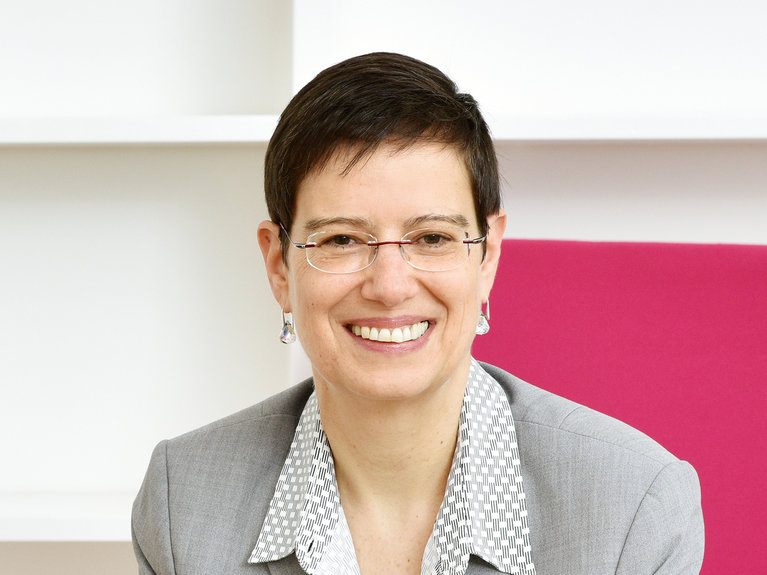
Ayelet Shachar (FRSC) is the R.F. Harney Chair and Director of the Ethnic, Immigration and Pluralism Studies Program at the Munk School of Global Affairs and Public Policy at the University of Toronto, where she is Professor of Law, Political Science, and Global Affairs. Previously, Shachar was Director at the Max Planck Institute for the Study of Religious and Ethnic Diversity. At Goethe University Frankfurt, she is affiliated with the Faculty of Law and the Normative Orders Research Centre. An award-winning author, she has published extensively on the topics of citizenship, global inequality, competitive migration regimes, cultural diversity and gender equality. Her research is motivated by the need to develop new legal principles to address some of the most pressing issues of our time: how to live together in diverse societies, how to grant rights to those who lack formal access to membership, and how to tame the ever-expanding reach of borders and migration control in a world of persistent inequality.
Ayelet Shachar won the Gottfried Wilhelm Leibniz Prize—Germany’s most prestigious research award for her groundbreaking work on citizenship and the legal frameworks of accommodation in multicultural societies.
Contact: office-shachar@uni-frankfurt.de
2020. The Shifting Border: Legal Cartographies of Migration and Mobility, Critical Powers Series, Manchester University Press
2017. The Oxford Handbook of Citizenship, Oxford University Press
2009. The Birthright Lottery: Citizenship and Global Inequality, Harvard University Press
2001. Multicultural Jurisdictions: Cultural Differences and Women’s Rights, Cambridge University Press
Papers
2021. Unequal Access: Wealth as Barrier and Accelerator to Citizenship, Citizenship Studies, 25 (4), 543-563
2020. Beyond Open and Closed Borders: The Grand Transformation of Citizenship, Jurisprudence, 11, 1-27
2019. Spatial Statism (with Ran Hirschl), International Journal of Constitutional Law, 17 (2), 387–438
2018. The Marketization of Citizenship in an Age of Restrictionism, Ethics & International Affairs, 32, 3-13
2014. On Citizenship, States, and Markets (with Ran Hirschl), Journal of Political Philosophy, 22, 231-257
2012. Demystifying Culture, I-CON International Journal of Constitutional Law, 10, 429-448
2011. Picking Winners: Olympic Citizenship and the Global Race for Talent, Yale Law Journal, 120, 2088-2139
2011. Earned Citizenship: Property Lessons for Immigration Reform, Yale Journal of Law & the Humanities, 23, 110-158
2008. Privatizing Diversity: A Cautionary Tale from Religious Arbitration in Family Law, Theoretical Inquiries in Law, 9(2), 573-607
Book Chapters
2013. Entangled: Family, Religion and Human Rights, in Cindy Holder and David Reidy (des), Human Rights: The Hard Questions, Cambridge University Press, 115-135
Eva-Maria Schäfferle
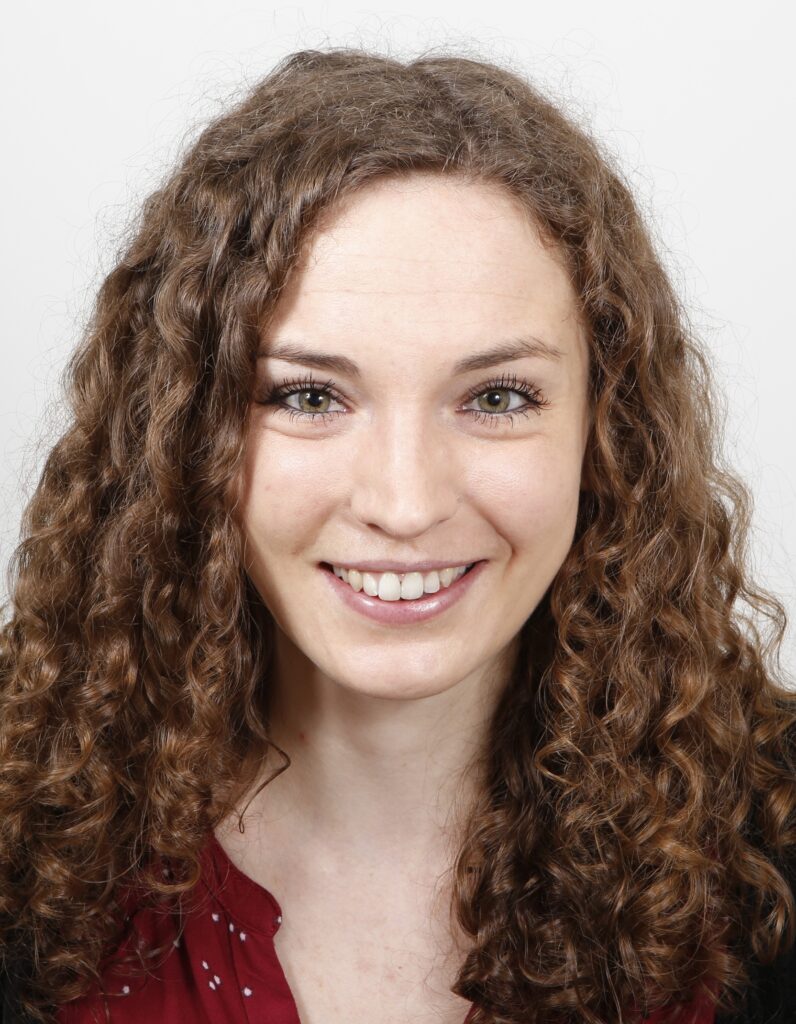
Eva-Maria Schäfferle is a postdoctoral researcher at Goethe University Frankfurt and a member of the Leibniz research group Transformations of Citizenship. She is particularly interested in questions of borders, citizenship and migration as well as in transnational and cosmopolitan theories of democracy.
She previously held positions at the Université Grenoble-Alpes and Sciences Po Paris and was awarded the Wilhelm-Bender-Prize for her dissertation ‘Modern Metics. EU Citizenship and the Boundaries of the Demos’.
Contact: Schaefferle@soz.uni-frankfurt.de
Online discussion of the article on Theorieblog: Comment by Joachim Blatter, followed by a response by the author.
2022. Strangers in each other’s lands: Democracy, migration, and inclusion in a mobile world, Constellations, online first
2017. Institutions for Future Generations, La Revue Nouvelle, 72 (8), 77-82
2017. ‘Souveränität und Legitimität des heranwachsenden europäischen Demos: Die Exklusivität der Europäischen Bürgerschaft auf dem Prüfstand‘, in: Grossman, Emiliano and Felix Heidenreich (eds.), Konstellationen der Souveränität in Europa, Berlin: LIT Verlag, 87-110
Book reviews
2022. La démocratie communautaire. Généalogie critique de l’Union européenne by Aliénor Ballangé, in: Politiques européennes, 78 (4), 158-163.
2021. Die Grenzen des Demos. Mitgliedschaftspolitik aus post-souveräner Perspektive, by S. Ahlhaus, in: Politische Vierteljahreszeitschrift, 62(2), 371-373
In my current research I seek to explore new avenues for strengthening the political voice of migrants. Migrants or non-citizens are subject to foreign states’ laws in multiple ways. They are bound by their immigration, integration and naturalization rules, which significantly restrict their personal freedom and choice of life plans. In contrast to citizens, though, they are deprived of political voice and influence. Seeking to overcome the political voicelessness of migrants, I’m particularly interested in new forms of democratic decision-making beyond the nation state. Can emerging forms of transnational democracy bridge the gap between national realities on the one hand and cosmopolitan ideals on the other? Can they help to remedy the problem of under-inclusiveness that modern nation states currently face? If so, how must transnational democracy be designed to ensure that the needs and interests of migrants are adequately represented in the decision-making process?
Lukas Schmid
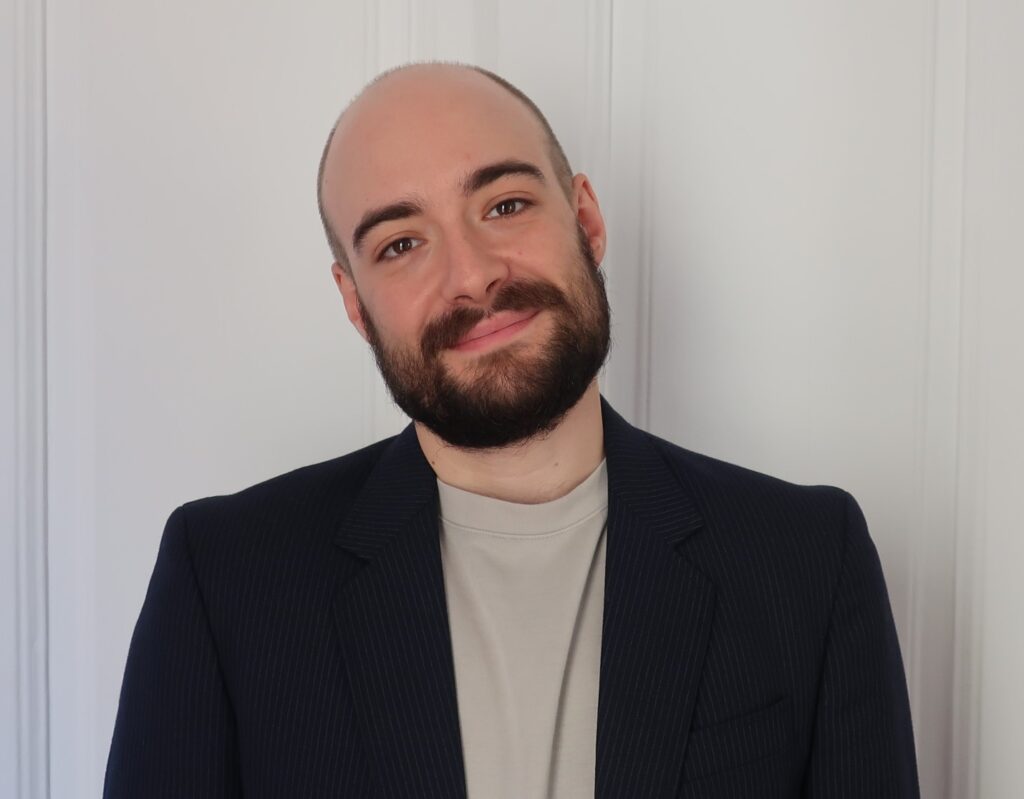
Lukas Schmid is a postdoctoral research fellow at Goethe University Frankfurt and a member of the Leibniz research group Transformations of Citizenship. He is a political theorist and mainly interested in the normative legitimation of inter- and transnational authority, with a particular focus on state authority over migration and immigration. He also has side interests in the ethical dilemmas involved in real-world migration policymaking and the ethics and politics of conceptual engineering. Before joining Transformations of Citizenship, he completed a PhD at the European University Institute and a MSc at the London School of Economics and Political Science.
Contact: L.Schmid@jur.uni-frankfurt.de
Personal website: https://sites.google.com/view/lukas-schmid
2022. Saving Migrants’ Basic Human Rights from Sovereign Rule. American Political Science Review, 116 (3), pp. 954-967, https://doi.org/10.1017/S0003055422000028.
2021. Deportation, harms, and human rights. Ethics & Global Politics, 14 (2), pp. 98-109, https://doi.org/10.1080/16544951.2021.1926083.
2021. Structural Injustice and Socially Undocumented Oppression: Changing Tides in Refugee and Immigration Ethics. Ethical Theory and Moral Practice, 24 (4), pp. 1047-1052, https://doi.org/10.1007/s10677-021-10218-z.
In his main postdoctoral project, Lukas aims to give a novel, book-length account of the conditions of legitimate inter- and transnational political authority, arguing that such authority currently remains elusive even while humanity’s common challenges render it much needed. The book revisits the plausibility of eminent philosophical principles of legitimate state authority by considering the challenges such authority faces in four areas of international concern: migration, war and peace, the international political economy, and climate change mitigation. During his time at Transformations of Citizenship, his initial focus will be on questions of legitimate authority in the areas of migration control and climate change mitigation.
The Ethics of Migration Policy Dilemmas
A secondary project explores fundamental ethical dilemmas in policymaking on migration and refugee protection. It hopes to expand the focus of existing normative research on migration and border control by adopting a ‘bottom-up’ approach that identifies specific ethical dilemmas that migration policymakers and civil society actors in the migration field face but that have not yet been considered by mainstream political philosophy. This project aims to overcome blockages in current debates about migration policy that result from academic scholars’ and policymakers’ commitment to partisan goals and values and their unwillingness to reflect on conflicting ones. This is a collaborative project pursued in tandem with scholars at other institutions, namely Rainer Bauböck, Julia Mourão Permoser, and Martin Ruhs. More information can be found at https://migrationpolicycentre.eu/projects/dilemmas-project/#overview.
Lilith Mackenberg
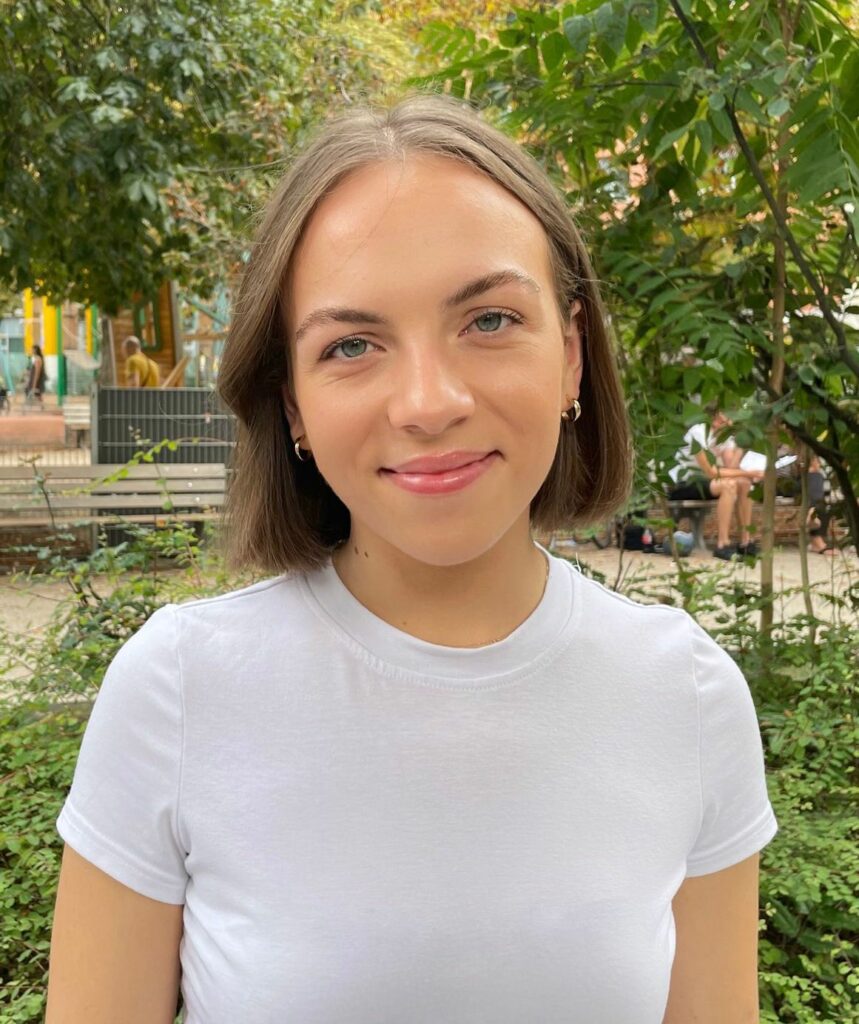
Lilith Mackenberg is a student assistant for the research group.
She is a law student at the Goethe University in Frankfurt and particularly interested in public law, especially asylum and refugee law.
Before her studies, Lilith spent two years working as a flight attendant and lived abroad in the United States of America for one year.
Alumni
Marie-Eve Loiselle

Marie-Eve Loiselle is a visiting postdoctoral fellow at the Transformations of Citizenship Leibniz Research Group. In 2020, Marie-Eve was awarded a Canadian Social Science and Humanities Research Council Postdoctoral Fellowship for studying the role of biometric technologies in the governance of the movement of people across state borders at the University of Toronto, Munk School of Global Affairs & Public Policy. Prior to joining the Munk School, she was a postdoctoral research fellow at the Max Planck Institute for the Study of Religious and Ethnic Diversity.
From 2016 to 2020 Marie-Eve was a research fellow at the University of New South Wales (UNSW) Faculty of Law. She completed her PhD at the Australian National University (ANU) where she explores the role of legal discourses in the construction of the border wall between the United States and Mexico. Marie-Eve also holds a MA from the ANU and a law degree from the University of Montreal.
Identities in Flux: From Legal Personality to Digital Identity, chapter in collection edited by Prof. Kathryn Henne (pending full review as requested by Cambridge University Press)
2021. The American Border Wall: A History of Legal Division, Law, Culture and the Humanities
2019. The Penholder System and the Rule of Law in the Security Council Decision-Making: Setback or Improvement? 33 Leiden Journal of International Law 139
2019. Elected Member Influence in the United Nations Security Council (with Jeremy Farrall, Christopher Michaelsen, Jochen Prantl, and Jeni Whalan) 33 Leiden Journal of International Law 101
2016. The UN Security Council as Regulator and Subject of the Rule of Law: Conflict or Confluence of Interest? (with Jeremy Farrall) in Hilary Charlesworth and Jeremy Farrall (eds.), Strengthening the Rule of Law through the UN Security Council (Routledge)
2013. The Normative Status of the Responsibility to Protect after Libya 5 Global Responsibility to Protect 317
Other Publications
2020. Borders, Bodies and See-All Technologies: Pushing the Limits of Bio-Surveillance (with Ayelet Shachar) Green European Journal
2015. Emancipating Rituals: Women’s Empowerment through Customary Justice, working paper
2014. Drifting Sovereignty, Regarding Rights Website
2013. This Saturday Australians will Finally Elect a President (with Jeremy Farrall ) The Conversation
2013. Security Council Sanctions: Can Australia Make a Difference? (with Christopher Michaelsen) The Conversation
2013. The Decline of Consent in International Law, The Interpreter
“Legal identity” has been defined as “the recognition of a person’s existence before the law, facilitating the realisation of specific rights and corresponding duties (Govil, 2015).” The term has gained currency in the international development space over the last decade, especially since the adoption of the Sustainable Development Goals (SDGs) by the UN General Assembly in September 2015, which call for the provision of a “legal identity for all by 2030” in its target 16.9 (A/RES/70/01). Marie-Eve’s research seeks to bring to light two versions of legal identity circulating in the development literature. First, a substantive version of legal identity, discursively constructing registration as necessary for someone’s recognition as a person before the law. Second, a thin conception, which emphasises the administrative and formalistic nature of legal identity. Through a critical analysis of that literature, this research will explore how in fact these two versions often collide in discourses about legal identity, in turn promoting the conflation of this concept with that of digital identity and other notions such as legal personhood. Building on these findings, the project will assess how developments in the space of legal identity risk in practice pushing citizens deprived of a digital proof of their legal existence towards de facto statelessness.
Walled Landscape: Legal Discourse and the Construction of Physical Partitions
In addition, Marie-Eve is currently working on her book project Walled Landscape: Legal Discourse and the Construction of Physical Partitions. The book uses the US-Mexico border wall as a frame to provide an alternative understanding of the relationship between the law and wall building by sovereign states. Relying on an interdisciplinary approach that brings socio-legal studies into dialogue with geography, history, and border studies, the book will trace the legal history of American wall-building to the first half of the 20th century. At the theoretical level, it will offer a novel approach to conceptualizing the entanglement between the wall and the law; first by being attentive to the legal discourses that have contributed to the construction of walls along the U.S.–Mexico border; and second, by considering the normative power of the wall as a material structure that holds discursive qualities.
Benjamin Boudou (2021 – 2022)
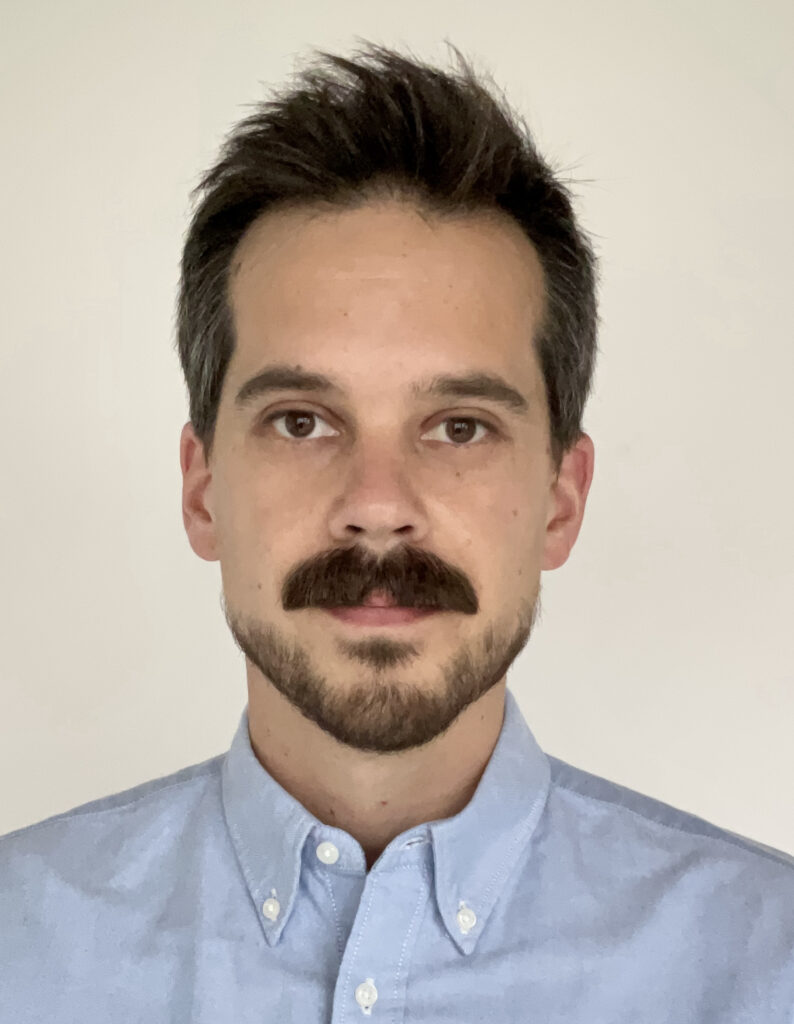
Benjamin Boudou worked on borders in democracy and the norms that govern the inclusion and exclusion of migrants. He was particularly interested in the representation of non-citizens and the contentious mobilizations of values such as sanctuary, civility, hospitality or solidarity.
He previously was senior research fellow at the Max Planck Institute for the Study of Religious and Ethnic Diversity, postdoctoral research fellow at the Center for International Studies at Sciences Po, and Fox international fellow at Yale University. He is the editor of the French journal of political theory Raisons Politiques.
Contact: benjamin.boudou@univ-rennes1.fr
2018. Le dilemme des frontières: Éthique et politique de l’immigration. Editions de l’EHESS
2017. Politique de l’hospitalité: Une généalogie conceptuelle. CNRS Editions
Papers
2022. Representing Non-Citizens: A Proposal for the Inclusion of All Affected Interests, Critical Review of International Social and Political Philosophy, online first
2021. Migration and the critique of ‘state thought’: Abdelmalek Sayad as a political theorist, European Journal of Political Theory, online first
2021. Beyond the Welcoming Rhetoric: Hospitality as a Principle of Care for the Displaced, Essays in Philosophy, 22(1/2), 85-101
2021. Sacred Welcomes: How Religious Reasons, Structures, and Interactions Shape Refugee Advocacy and Settlement (with Hans Leaman and Max Scholz), Migration and Society, 4(1), 100-109
2020. Migration and the Duty of Hospitality: A Genealogical Sketch, Transitions: Journal of Transient Migration, 4(2), 257-274
2016. What is political theory for?, Raisons politiques, 64, 7-27
2012. The Crossing of the Political: Derrida and Ricœur between the Purity of Philosophy and the Tragic Dimension of Action, Raisons politiques, 45, 211-233
Chapters
2019. Hospitality in Sanctuary Cities, in Sharon M. Meagher, Samantha Noll, Joseph S. Biehl (eds), The Routledge Handbook of Philosophy of the City, Routledge, 279-290
2018. Language proficiency and migration: An argument against testing (with A. v. Busekist), in M. Gazzola, T. Templin, B.-A. Wickström (eds), Language Policy and Linguistic Justice: Economic, Philosophical and Sociolinguistic Approaches, Berlin, Springer, 189-208
Book reviews
2020. An Urban Turn in the Ethics of Migration? Review of Avner de Shalit, Cities and Immigrants: Political and Moral Dilemmas in the New Era of Migration, Oxford: Oxford
University Press, 2018, Raisons politiques, 79, 2020, 109-121
This project examines the ethical, political and legal issues of “heroism” as a condition for citizenship acquisition. I examine situations where fast-track citizenship, long-term residence permits or immediate naturalization have been offered as a reward for exceptional acts of selfless and risky altruism. I aim to answer four questions: a political one (what are the ideological and political conditions for heroic citizenship to be possible?), a legal one (how is law mobilized to allow such exceptional measures?), a conceptual one (how does heroic citizenship affect the conceptualization of citizenship through notions of deservingness, performance, civic virtues of altruism and sacrifice?), and a normative one (is heroic citizenship desirable?).
Representing Non-Citizens
This project explores the normative relevance of the representation of non-citizens in democracies. I argue that representation within nation-states constitutes a realistic institutionalisation of the All-Affected Principle, allowing justificatory practices towards non-citizens and establishing political institutions that can realise the ideal of inclusion of all externally affected individuals. I analyze electoral, non-electoral and surrogate forms of representation of affected interests that satisfy both the cosmopolitan concern for the equal consideration of interests and the statist defence of a territorially and civically bounded demos. I assess piecemeal implementations of representation practices, namely reciprocal representation, ombudspersons, self-appointed representatives and deliberative and advocacy groups. Gradual and pluralised means of representation constitute necessary and feasible first steps to consider affected interests and offer an alternative route to an all-or-nothing defence of inclusion as national enfranchisement.
Guests
On June 2022, Seyla Benhabib is our Distinguished Visiting Professor. She will give the keynote lecture of our workshop “Borders, Territory and Rights: Changing Legal Cartographies of Migration and Mobility.”
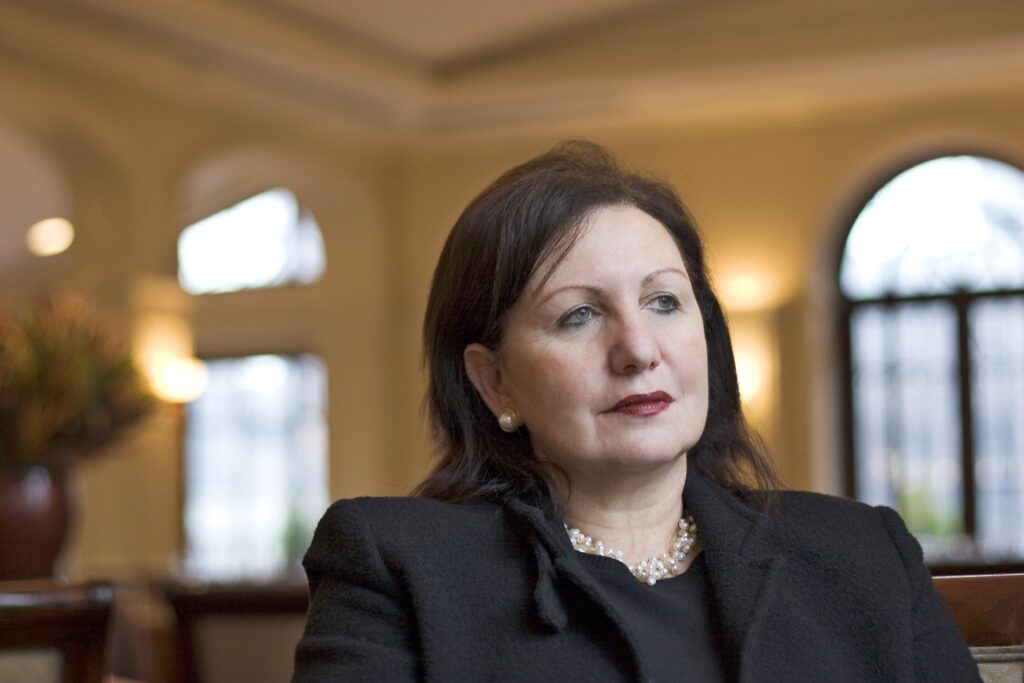
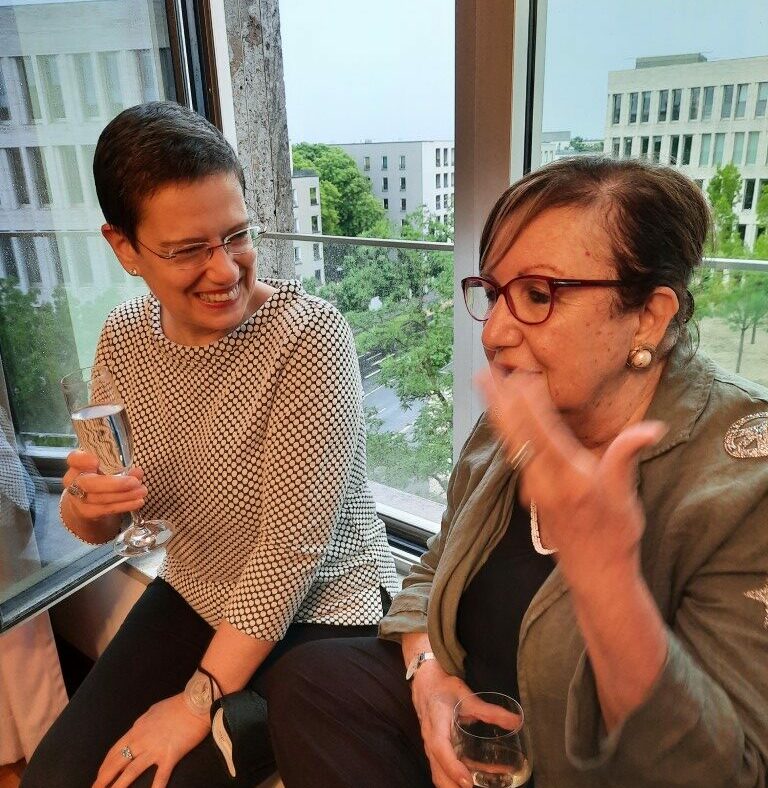
Seyla Benhabib is Senior Research Scholar and Professor Adjunct of Law at Columbia Law School and Faculty Affiliate, Department of Philosophy, Senior Fellow, CCCT, at Columbia University.
2018. Exile, Statelessness, and Migration: Playing Chess with History from Hannah Arendt to Isaiah Berlin, Princeton University Press
2011. Dignity in Adversity: Human Rights in Turbulent Times, Polity Press
2004. The Rights of Others: Aliens, Citizens and Residents, Cambridge University Press
2002. The Claims of Culture: Equality and Diversity in the Global Era, Princeton University Press
1996. Democracy and Difference: Contesting the Boundaries of the Political, Princeton University Press
1992. Situating the Self: Gender, Community and Post-modernism in Contemporary Ethics, Polity Press and Routledge
